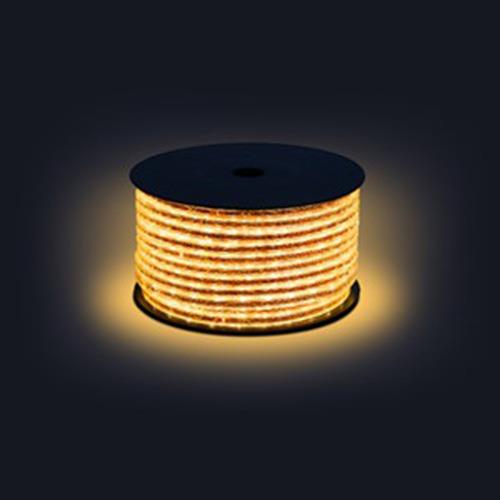There are two voltage options for outdoor lighting that you need to consider - 12V and 120V. Each has its own unique features and benefits. Let's dive into the details:

Low Voltage (12V) Landscape Lighting
Low voltage landscape lighting is the most popular choice for residential outdoor lighting. It offers several advantages that make it the preferred option for many homeowners. Here's why:
Ease of Installation: Installing low voltage landscape lighting is a breeze. You don't need to be a licensed electrician to work with these lights. The installation process is simpler and less disruptive, making it a DIY-friendly option.
Affordability: Opting for 12V landscape lighting can save you some money. These lights are generally less expensive compared to their line voltage counterparts. So you can illuminate your outdoor space without breaking the bank.
Safety: Safety is paramount when it comes to outdoor lighting. Low voltage landscape lighting provides peace of mind. It operates safely in wet locations and minimizes the risk of shock. Additionally, the cable used for these lights does not need to be buried, making the installation even safer.
Versatility: With low voltage landscape lighting, you have an abundance of choices. There is a wide variety of fixtures, bulbs, wattages, and designs available. This allows you to customize your outdoor lighting setup to meet your specific needs and preferences.
Flexibility: Need to relocate your lighting fixtures? No problem. Low voltage landscape lighting can be easily moved when rearranging your landscaping or making home improvements. This flexibility ensures that your outdoor lighting can adapt to any changes you make to your outdoor space.
Aesthetics: If you're looking for elegance and style, low voltage landscape lighting has got you covered. It offers more elegant designs and options compared to line voltage lighting. You can create a visually appealing outdoor space that enhances the overall ambiance of your home.
- Read more: Waterproof LED Strip Lights: GE LED Light
Line Voltage (120V) Landscape Lighting
Line voltage outdoor lighting, on the other hand, is commonly used in commercial, security, and public-use applications. Here's what you need to know about 120V landscape lighting:
Installation Complexity: Installing line voltage outdoor lighting requires the expertise of an electrician. The complexity of the installation process means that it's not suitable for DIY projects. You'll need a professional to handle the wiring and connections.
Waterproof Connections: Line voltage outdoor lighting requires waterproof connections to ensure safety. Any cable used must be buried 18" deep or placed inside conduit. This necessitates trenching and careful planning during installation.
Fixture Size and Lighting Options: Line voltage fixtures tend to be larger and output more light compared to low voltage fixtures. However, there are fewer options available when it comes to fixtures and lighting choices. Line voltage lighting is best suited for commercial, security, and public-use applications where brighter fixtures are required.
Cost: It's important to note that line voltage outdoor lighting usually comes with a higher price tag. The complexity of the installation process, larger fixtures, and limited options contribute to the higher cost compared to low voltage lighting.
- Read more: Review Best Outdoor Waterproof LED Strip Lights: BSOD LED Light
Frequently Asked Questions
Q: Is low voltage landscape lighting safe for use around children and pets?
A: Yes, low voltage landscape lighting is safe for use around children and pets. It operates at a lower voltage, reducing the risk of shock. Additionally, the cable used for these lights does not need to be buried, making it safer for curious children and pets.
Q: Can low voltage landscape lighting be easily relocated?
A: Absolutely! Low voltage landscape lighting provides flexibility and ease of relocation. Whether you're rearranging your landscaping or making home improvements, you can easily move the fixtures without the need for complicated rewiring.
Q: Is line voltage outdoor lighting suitable for residential applications?
A: Line voltage outdoor lighting is typically used for commercial, security, and public-use applications. However, it can be used in residential settings, especially if you require extensive up-lighting on a large canopy of big trees. Keep in mind that line voltage lighting requires the expertise of an electrician for installation and has limited options compared to low voltage lighting.
In conclusion, when it comes to landscape lighting, both low voltage (12V) and line voltage (120V) have their advantages and considerations. For most residential applications, low voltage landscape lighting offers better safety, affordability, versatility, and aesthetics. However, line voltage lighting has its place in commercial and security applications. Consider your specific needs and consult with a professional to make the right choice for your outdoor lighting setup.
Read more: What You Need to Change a Pool Light









